
Protests and price drops: mining giant faces challenges
The annual meeting of one of Australia’s biggest mining firms has been interrupted by protesters blaming the company for knowingly contributing to the climate crisis.
Whitehaven Coal executives evicted activists from its Sydney meeting within minutes on Thursday before sharing positive forecasts for metallurgical coal prices with shareholders.
The company, which acquired two Queensland coal mines from BHP last year, also revealed it was optimistic the Queensland government would change mining royalty rates that it considered “punitive”.
The AGM comes after Whitehaven announced $5.8 billion in revenue for the 2025 financial year and the production of 39.1 megatonnes of coal, including 20Mt from its Queensland operations.
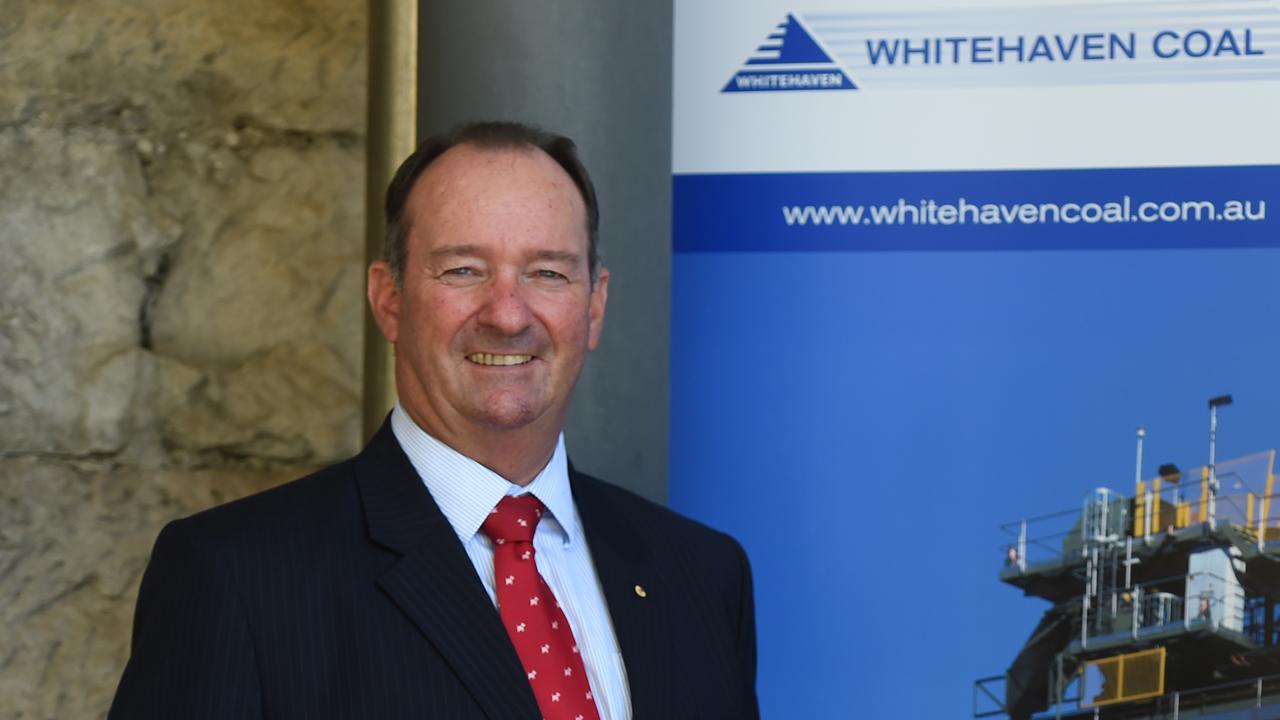
Protesters interrupted a presentation by Whitehaven chair Mark Vaile less than 10 minutes into the company’s annual general meeting, with one man rising to call the firm “evil”.
“The climate crisis is destroying my generation’s future… and they know it as well,” he yelled.
The group was escorted from the meeting by security before Mr Vaile announced they had entered the venue under “false pretences” using proxy votes.
“Let us get on with the orderly meeting of a legitimate Australian company that pays an enormous amount of tax that a lot of these people probably live off,” he said.
Despite falling prices for coal in recent months and a “complex and dynamic” market, Mr Vaile said global policies were becoming clearer and the company expected the price of metallurgical coal to rise over the long term.
“Policy implementation in China and greater clarity around US trade policies are supporting a recovery in coal prices and improved sentiment,” he said.
“We continue to expect long-term supply and demand dynamics to support stronger prices.”
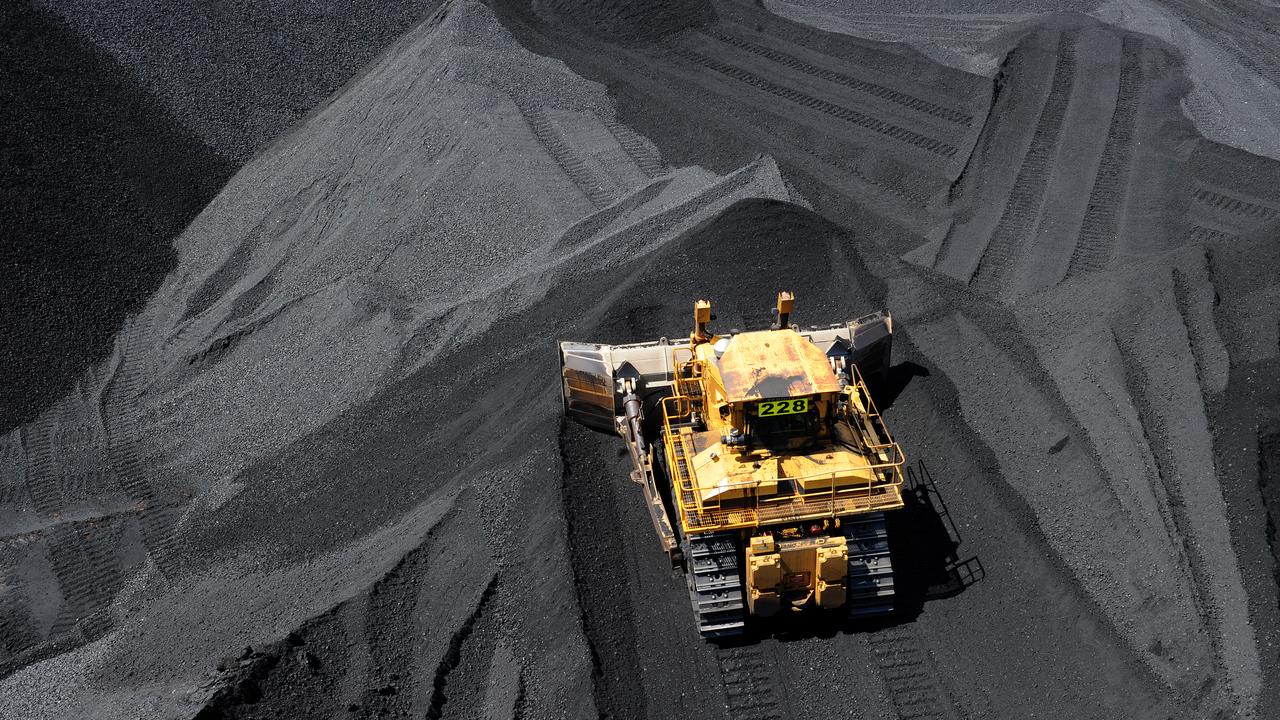
The price of thermal coal had also “recovered somewhat” since June, Whitehaven chief executive Paul Flynn said, and the company expected the cost of coal to sit between $130 and $145 per tonne over the coming year.
Queensland’s mining royalties scheme, introduced in 2022, had impacted the company, Mr Flynn said, and could affect future investment decisions if the state government did not change it.
“It’s quite a punitive regime up there and of course inflation has lifted the cost basis of the industry in Queensland as well as NSW,” he said.
“From our perspective, there is a good opportunity for change given that this government obviously has inherited that position is looking to stimulate further investment in the coal mining sector.”
The company also announced it had received an environmental complaint about dust at its Maules Creek mine in NSW after reporting its 2025 results, and Mr Flynn said he would consider whether to appeal a fine.
Whitehaven is also facing court proceedings from three environmental complaints lodged in the 2021 and 2022 financial years.

Australians lose hope as nation lags on housing targets
No state or territory is on track to meet housing needs over the next five years and Australians lack confidence the crisis will be solved, a national scorecard has found.
Independent advocacy group Amplify said the results of its research, tracking housing delivery and community sentiment on the housing crisis, are “grim”.
Amplify chief executive Georgina Harisson said the promise of an affordable and secure home for Australians “has been broken”.
“We’re not building enough homes and people don’t trust governments to turn it around,” she said.
“Low confidence in housing delivery reflects more than just supply issues, it signals deeper challenges; when people feel disconnected from decision-making, optimism erodes.”
The research, released on Thursday, follows news this week that a key federal housing policy, the Housing Australia Future Fund, is being audited amid concerns the $10 billion scheme may not be delivering value for money.
The Amplify research showed community confidence in housing delivery is below 50 per cent in every state and territory.
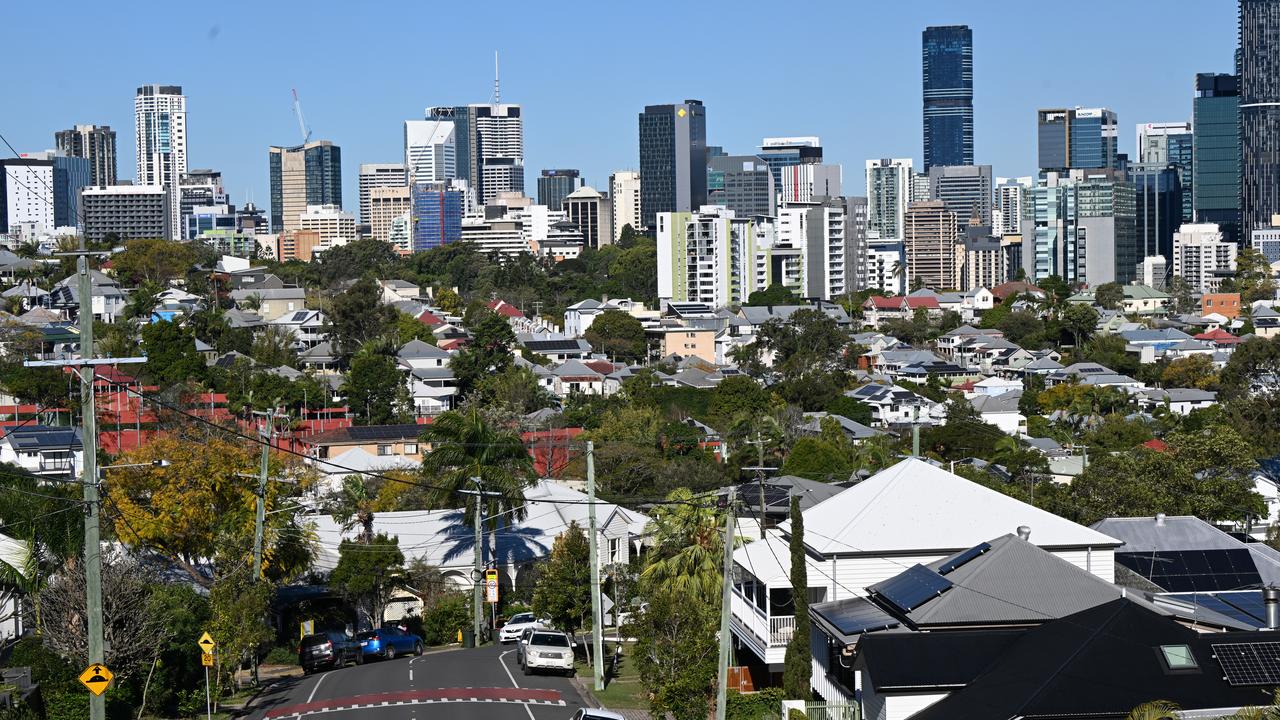
Victoria is on track to meet 90 per cent of its housing target yet has the lowest trust in government nationally (33.4 per cent).
The ACT has made the strongest progress on housing nationally with a headline score of 61.8 per cent, driven by near-target delivery (96.4 per cent) and the highest confidence level (46.1 per cent).
South Australia’s government is the most trusted in the nation on the issue of housing delivery, while Queensland faces a confidence crisis, with just 34 per cent believing housing needs will be met.
“To turn this around, governments need to move beyond partisan housing debates and focus on genuine engagement, building clarity and trust around what’s being done to tackle the housing crisis,” Ms Harisson said.
“That means listening to what people really need, properly engaging with the community and adopting new approaches to accelerate delivery and meet targets.”
The Housing Australia Future Fund was set up in 2023 and aimed to build 40,000 social and affordable homes by 2028.
But construction progress has been slow and there have been reports the average cost to the fund of a home was more than $750,000.
On Wednesday, it was revealed Auditor-General Caralee McLiesh is conducting an audit that is to be tabled in parliament in June 2026.

JB Hi-Fi entering holiday period with ‘good momentum’
JB Hi-Fi has reported solid sales growth at its namesake Australian stores as the retailer prepares for the important end-of-year trading period.
Same-store sales at its JB Hi-Fi stores in Australia grew five per cent in the September quarter, the same level as a year ago.
Same-store sales growth decelerated at The Good Guys, falling from 5.0 per cent growth to 2.4 per cent, while its new e&s furniture chain recorded same-store sales growth of 0.7 per cent.
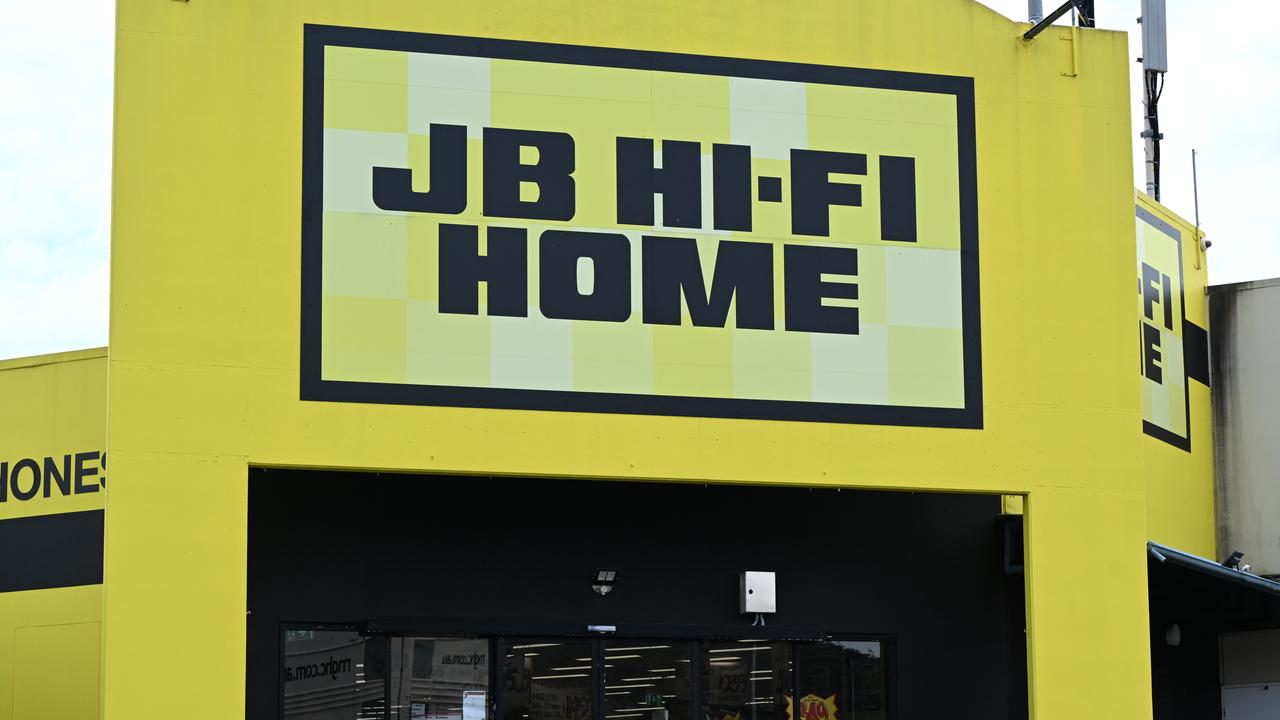
In New Zealand, same-store JB Hi-Fi sales were up 24.3 per cent, compared with just 2.7 per cent growth a year ago.
“We don’t call it too early, because we’ve got plenty of work to do in New Zealand, but I think we’re starting to see that point where our investment is starting to resonate,” group chief executive Nick Wells told shareholders at the company’s annual general meeting on Thursday.
“It’s still not an easy market in New Zealand, so that is largely market share driven,” Mr Wells said, meaning JB Hi-Fi has been taking sales from competitors.
Mr Wells said he thought the company’s overall sales growth was “pretty solid”.
“You can see that momentum continuing through the quarter,” he said.
“Obviously, we’re entering an important period now with the second-quarter promotional period, but we’re coming in with good momentum.
“We’ve got some really strong promotions planned. We’re in a good stock position. We’re optimistic about the next quarter.”
JB Hi-Fi plans to open five new Australian JB Hi-Fi stores in 2025/26 and close one, while opening three more JB Hi-Fi stores in New Zealand.
JB Hi-Fi recently expanded e&s into Tasmania for the first time, adding a store in Hobart – its only e&s store opening planned this financial year.
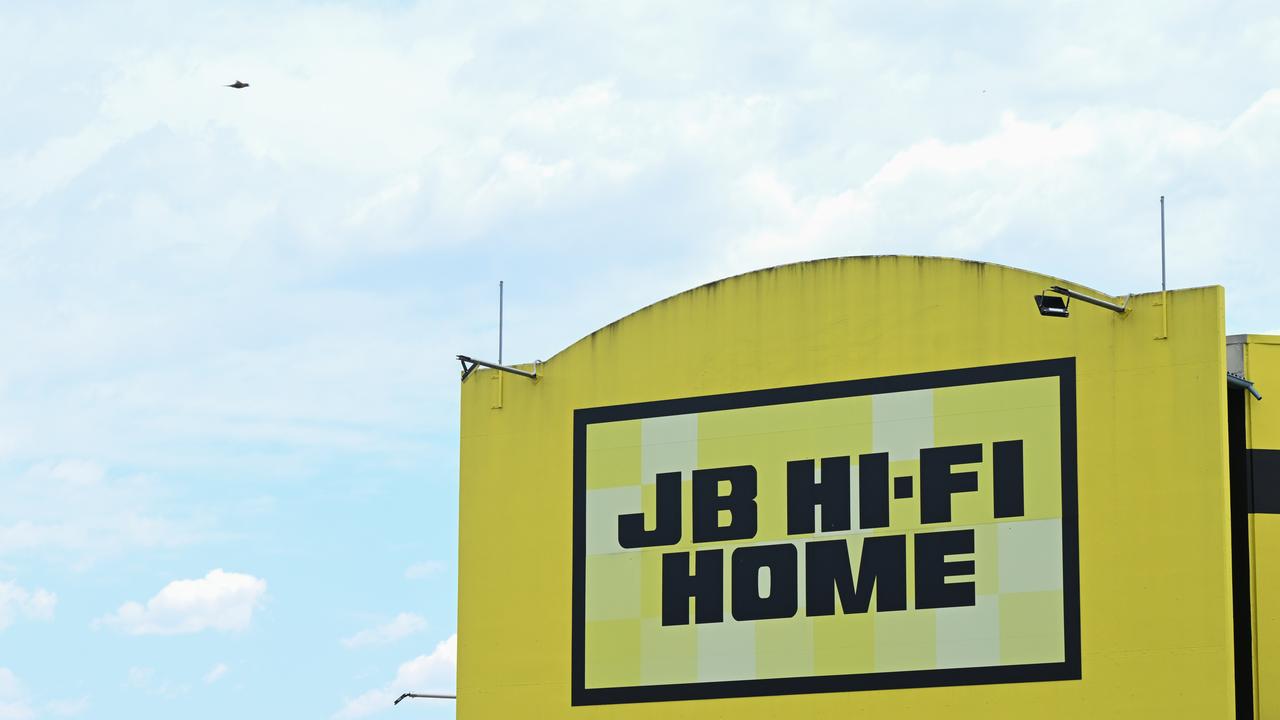
“That’s early days, but showing promising signs,” Mr Wells said.
JB H-Fi paid $47.8 million in 2024 to take a 75 per cent stake in e&s, a white goods supplier with 10 showrooms in Victoria and one in the ACT.
“E&S is only a small business today, but we do have growth ambitions for that business,” Mr Wells said.
“The last 12 months, we’ve been really just focused on trying to get the foundations right and set that business up for future success …
“We’ve got a bit more work to do on those systems and processes and people, and then once we get that right, we’ll start to look to roll out that brand.”
JB Hi-Fi shares were down 3.1 per cent to $109.96 late Thursday afternoon, but were still 16.4 per cent up so far in 2025.

Trump heaps praise on Albanese at diplomatic dinner
Donald Trump has lavished praise on Anthony Albanese at a ceremonial dinner ahead of the APEC summit in South Korea, talking up co-operation between the US and Australia on rare earths and other issues.
Eight leaders including the prime ministers of New Zealand, Canada, Thailand, Singapore and Vietnam attended the dinner in the tourist town of Gyeongju.
The gathering was held in honour of Mr Trump, who is now preparing for a hotly anticipated meeting with his Chinese counterpart where trade is expected to take centre stage.
Mr Trump said his talks with President Xi Jinping would run for three or four hours, and suggested he was close to a deal with China, which would see the US ease some of its punishing tariffs.
Addressing the gathered officials, Mr Trump reserved some of his strongest praise for the Australian prime minister, whom he was seated next to at the round table.
“We had a great meeting a week ago,” the US president told Mr Albanese.
“You’ve done a fantastic job … we’re working together on rare earths, but we’re working on a lot of things together,” he said.
Mr Albanese greeted his American counterpart warmly and shook his hand as the leaders gathered for their official photo.
The prime minister’s White House visit last week was widely praised as a success after the two leaders signed a multibillion dollar deal to give the US greater access to Australia’s critical minerals reserves.

Microsoft Azure outage hits sites, Scottish parliament
Microsoft has deployed a fix to address an outage of its Azure cloud portal that has left users unable to access Office 365, Minecraft and other services while disrupting Scotland’s parliament.
The tech company wrote on its Azure status page that a configuration change to its Azure infrastructure caused the outage and that its fix is being rolled out.
Microsoft did not immediately respond to a request for comment but the company acknowledged issues with its Azure Front Door, a global content and application delivery network, service on its status page and social media accounts.
Because so many sites and services use Microsoft’s cloud service, an outage like this one can have widespread effects.
On Downdetector, a website that tracks online outages, users reported issues throughout the day with Office 365, Minecraft, XBox Live, Copilot, Costco, Starbucks and many other services.
Voting was suspended at the Scottish parliament following the outage.
Holyrood’s Presiding Officer said technical issues meant MSPs were unable to vote.
Alaska Airline wrote on its X account that the outage is at the heart of problems affecting their systems, including check-in services.
Microsoft’s Azure troubles came just hours before the company was set to release its quarterly earnings report, and just over a week after a massive outage of Amazon’s cloud computing service took down a broad range of online services, including social media, gaming, food delivery, streaming and financial platforms.
Amazon is the dominant provider of cloud computing services but Microsoft ranks second, ahead of Google, in most markets.
with PA

US central bank cuts rates, notes limits of data
A divided US Federal Reserve has cut interest rates by a quarter of a percentage point and announced it will restart limited purchases of Treasury securities after money markets showed signs that liquidity was becoming scarce, a condition the US central bank has pledged to avoid.
The rate cut, which included a nod to the data limits the central bank faces during the current US federal government shutdown, drew dissents from two policy-makers, with governor Stephen Miran again calling for a deeper reduction in borrowing costs and Kansas City Fed president Jeffrey Schmid favouring no cut at all given ongoing inflation.
The balance sheet decision will as of December 1 keep the total amount of the Fed’s holdings steady on a month-to-month basis but shift its portfolio by reinvesting the proceeds of maturing mortgage-backed securities into Treasury bills.
The 10-2 decision to lower the policy rate to a range of 3.75 per cent-4.00 per cent was expected by investors as a way for the Fed to temper any further decline in a job market policy-makers worry may be losing steam.
But Fed members acknowledged the limits in their decision-making process posed by the government shutdown, dating their view of the unemployment rate to August – the month of the last official jobs release – while noting that “available indicators suggest” the economy continued growing at a moderate pace.
Fed chair Jerome Powell will hold a press conference later on Wednesday to discuss the results of the meeting and update his views about an economy that policy-makers say has been giving off contradictory signals, with a strong run of business investment suggesting underlying strength but hiring slowing to a crawl.
Inflation has not risen as strongly as initially expected on the back of US President Donald Trump’s new import taxes but nevertheless has climbed from about 2.3 per cent in April to about 2.7 per cent in August, according to the last official estimate released for the Personal Consumption Expenditures Price Index before the shutdown.
The Fed uses the PCE to set its 2.0 per cent inflation target, and in projections issued in September policy-makers expected it to rise to 3.0 per cent by the end of this year.
They expect that increase in prices to ease over time while concern about the strength of the job market has increased.
“Downside risks to employment rose in recent months,” the Fed said in its new policy statement.
The dissents marked just the third time since 1990 that policy-makers have dissented both in favour of easier and tighter monetary policy at the same meeting.

Passing major nature reforms matter of ‘now or never’
Labor is challenging the coalition and Greens to help pass long-awaited nature reforms by the end of 2025.
“Reform can and will be done,” Environment Minister Murray Watt will tell the National Press Club on Thursday.
“With the hyper-partisan atmosphere of an election campaign behind us, now is the best opportunity to pass a balanced set of laws … that are firmly in the national interest.
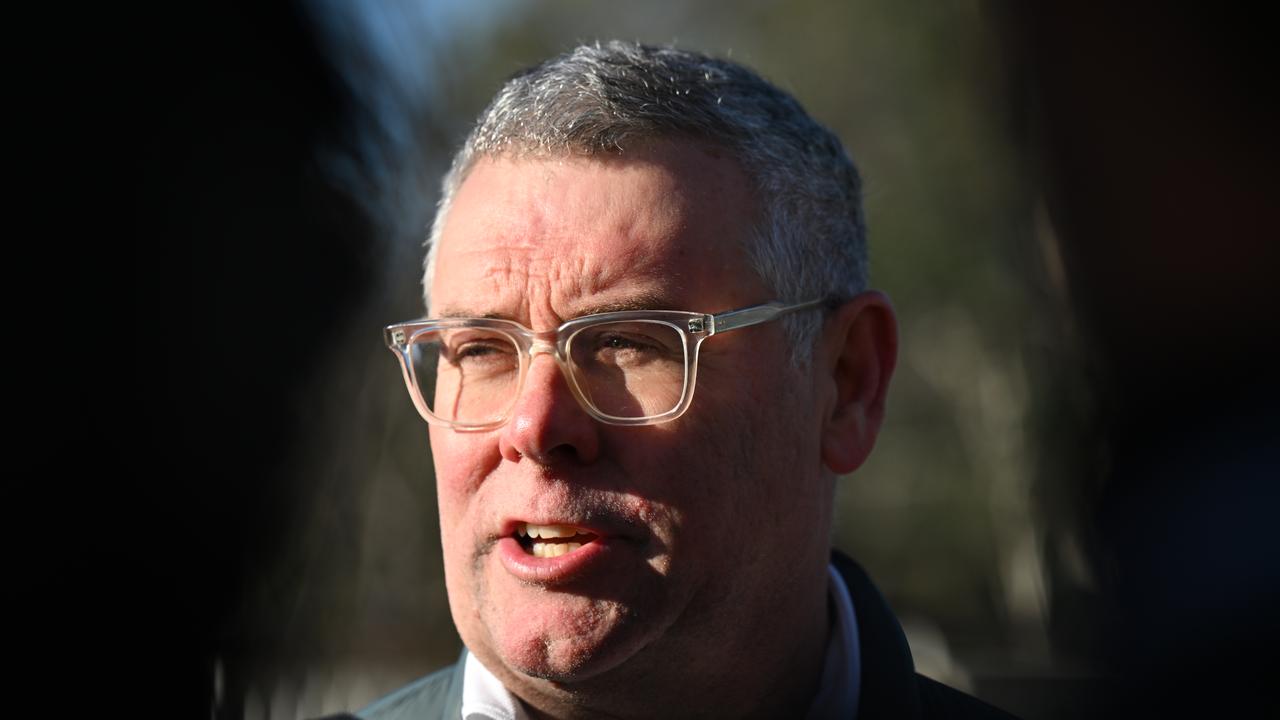
“Put simply, it’s now or never.”
The bill overhauling the Environment Protection and Biodiversity Conservation Act will be introduced into the House of Representatives on Thursday.
Senator Watt will then give a speech saying the legislation strikes a balance between protecting the environment and speeding up project approvals.
The bill draws on a 2020 review authored by Graeme Samuel that was handed down when Opposition Leader Sussan Ley was the environment minister.
“His review exposed that our national environment law is fundamentally broken, outdated and is failing both the environment and business,” Senator Watt will say in his speech.
He will take aim at the coalition’s infighting and Ms Ley’s call this week to split up the bill.
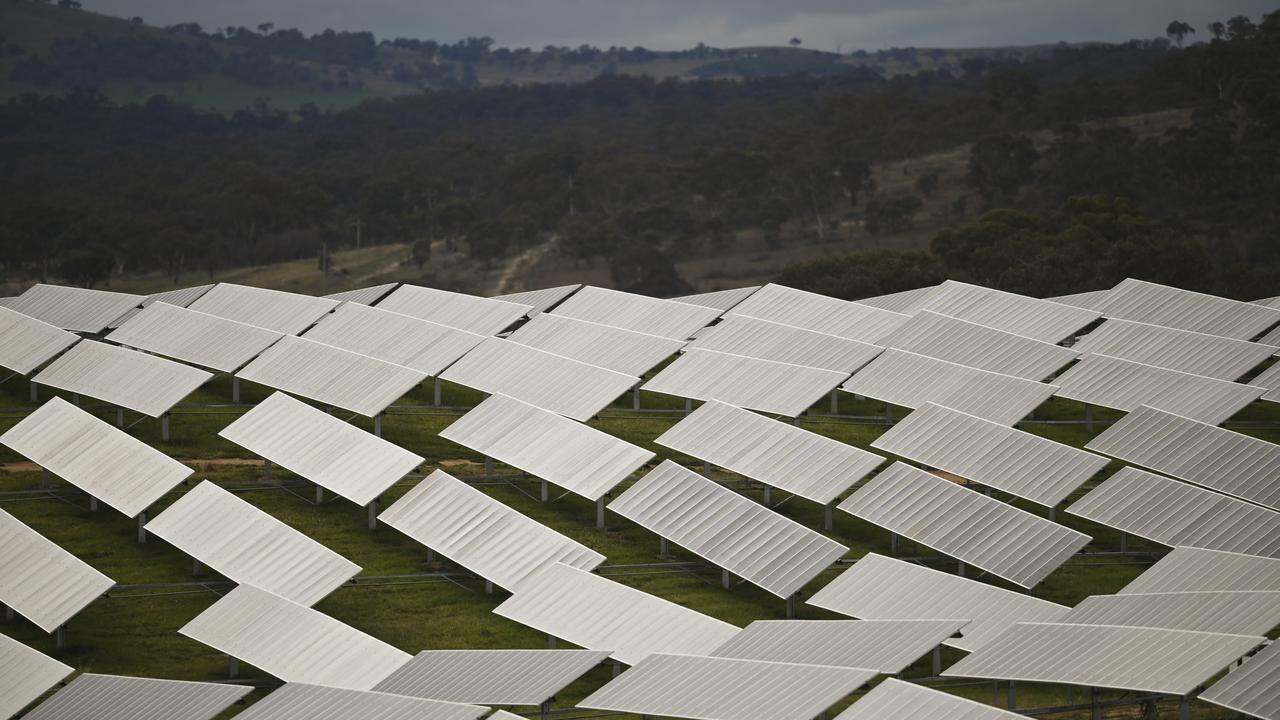
The environment minister will also take a swing at the Greens for threatening to block reform “rather than making progress”.
Key parts of the bill include setting up an independent Environmental Protection Agency, though the minister would retain the final say on development approvals.
The EPA will act independently with new powers, including the ability to issue stop-work orders and to audit approval-holders to ensure compliance.
The reforms will also remove duplication in approvals and assessment systems by updating bilateral agreements with state and territories.
It will streamline assessment time frames for proponents who provide enough up-front information for developments.
The government will immediately push for a 25-day parliamentary inquiry into its reforms, which would report back in time for the bill to clear the Senate before parliament returns on November 27.

Shot to rate cut hopes as coffee leads inflation rise
The soaring price of coffee beans could be the reason home owners miss out on a Melbourne Cup day interest rate cut.
Australian Bureau of Statistics data released on Wednesday showed consumer prices rose 3.2 per cent in the 12 months to September, jumping out of the Reserve Bank’s target band of two to three per cent for the first time in more than a year.
Driving the spike were strong increases in the cost of education, health, housing, alcohol and tobacco.
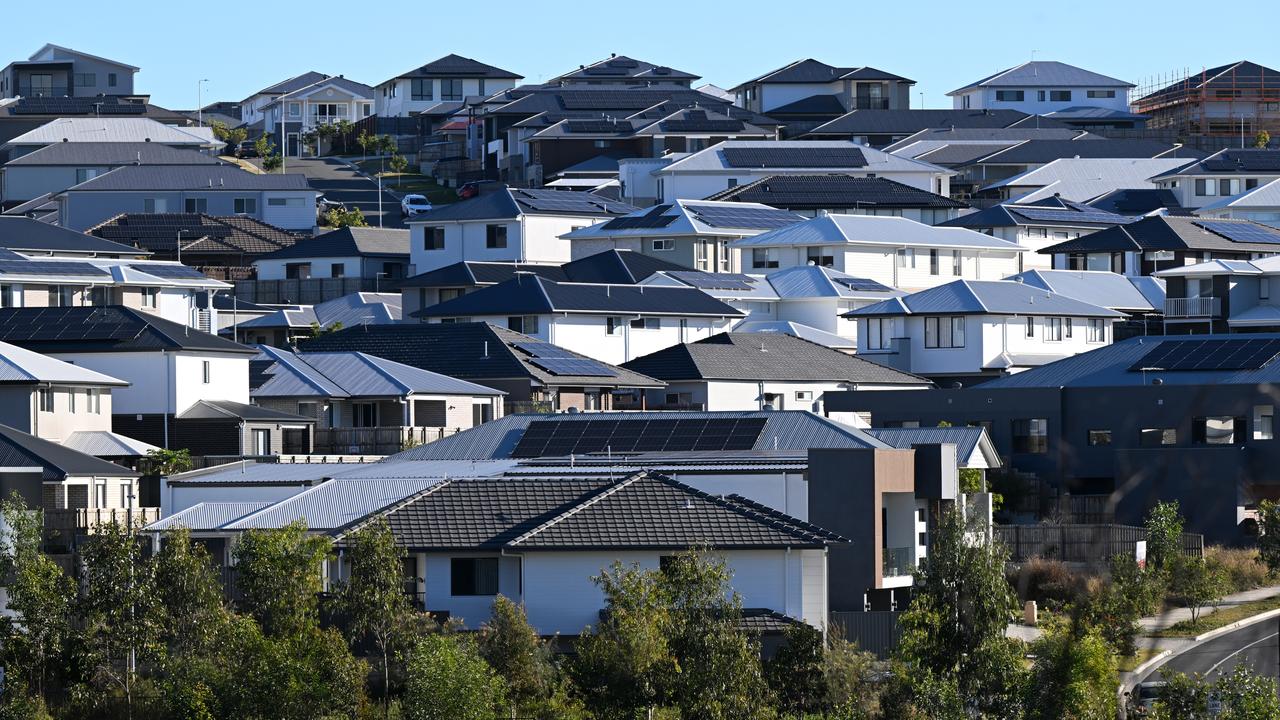
Underlying or trimmed-mean inflation, the Reserve Bank’s preferred measure which strips out more volatile price movements, also ticked up from 2.7 per cent to three per cent.
Economists believe the sharp rise in consumer prices has all but ruled out a cut in interest rates when the Reserve Bank meets next week, and CommSec now says the RBA has finished cutting rates for the foreseeable future.
Commsec chief economist Ryan Felsman said a surprising feature of the inflation data was a massive increase in the price of coffee.
While inflation for food and non-alcoholic drinks held steady at three per cent, prices for coffee, tea and cocoa shot up 14.6 per cent.
This was largely driven by bad weather in the coffee bean powerhouses of Brazil and Vietnam, along with US President Donald Trump’s tariffs, Mr Felsman said.
“Those underlying commodity prices are then translated into higher prices at grocery stores for some of those goods,” he told AAP.
Yearly increases in alcohol and tobacco tax also played a part in the strong figures.
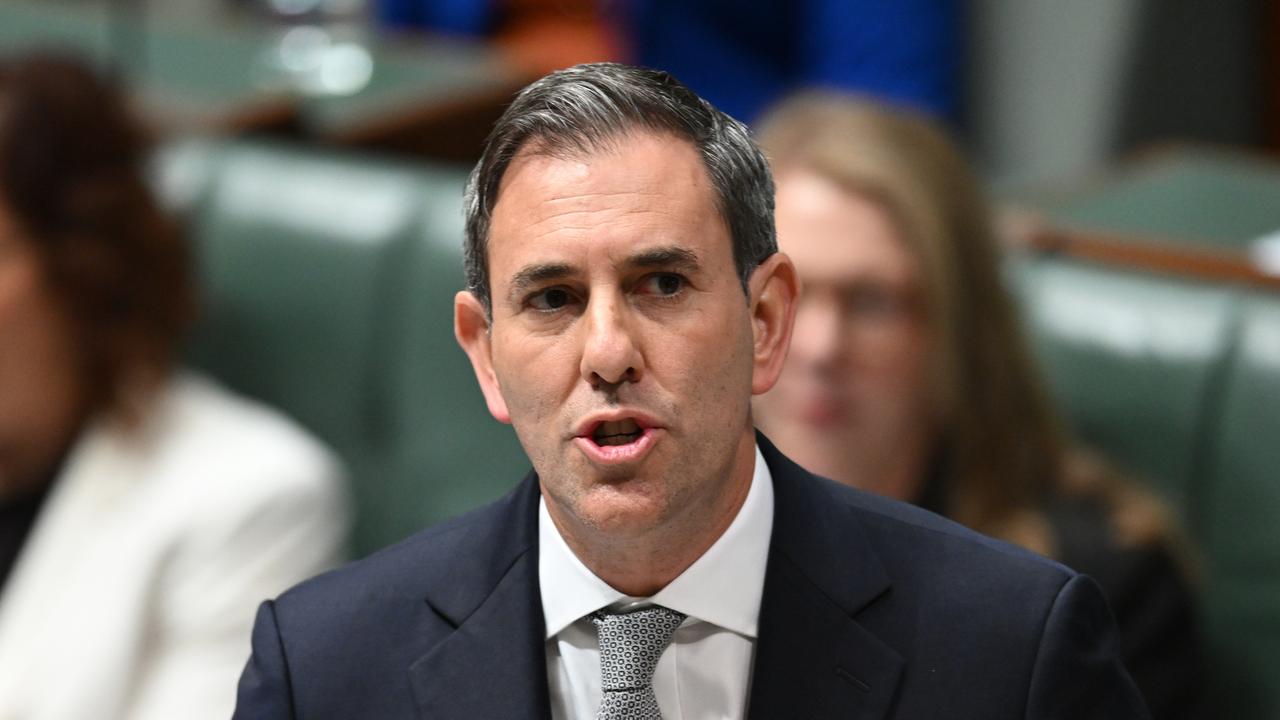
As analysts and mortgage-holders reel from the hotter-than-expected inflation reading, Treasurer Jim Chalmers has given a key speech to business leaders outlining the government’s next steps towards economic reform.
Dr Chalmers flagged changes to the superannuation performance test, a set of rules that hold super funds accountable for the returns on their investments.
The government has previously raised concerns the test might be stifling investment in certain asset classes such as housing and clean energy.
“We’re open to considering responsible changes that maintain very high standards and the super funds’ responsibilities to members,” he told the Australian Chamber of Commerce and Industry’s gala dinner on Wednesday night.
Labor will consult with the super industry and experts before introducing any reforms to the test.
Dr Chalmers has also indicated his midyear economic update, expected to be handed down in December, will not contain many new policies.
“The midyear update will be precisely that – an opportunity to update forecasts and the fiscal position,” he said.

UK PM does not commit to tax pledges ahead of budget
UK Prime Minister Keir Starmer has declined to commit to a previous pledge not to raise taxes on working people ahead of a budget next month, saying upcoming forecasts would show the economy was in a worse state than thought.
Economists have said finance minister Rachel Reeves may have to break the government’s promise and raise income tax, a move that would break the commitment Labour made to voters ahead of the election in 2024.
Conservative Party opposition leader Kemi Badenoch asked Starmer if he stood by his promise not to increase income tax, social security contributions or value added sales tax.
Starmer said the government would lay out its plans in the budget on November 26.
Badenoch said he had given the single-word answer “yes” when asked exactly the same question in July.
Starmer said he would not announce the budget plans in advance but an expected downgrade of the United Kingdom’s productivity outlook by official forecasters represented a judgment on the Conservatives’ 14 years in office.
“Those figures are now coming through, and they confirm that the Tories (Conservatives) did even more damage to the economy than we previously thought,” Starmer said.
The UK’s budget watchdog is expected to cut its productivity forecast by a larger-than-expected 0.3 percentage points, people familiar with the situation said on Tuesday, potentially leading to a 20 billion pound ($A40 billion) hit to the public finances.
Reeves is believed to be considering a range of options to remain on course for her target of balancing day-to-day spending with tax revenues by the end of the decade.

Gambling lobby floats ad limit as uncertainty lingers
The gambling industry is calling for certainty after years of inaction on advertising reforms as harm reduction advocates push for a blanket ban.
A phase out of advertising, banning inducements and removing commissions paid to staff or third parties for referring or providing online gambling were key recommendations of a landmark parliamentary report into wagering harm.
The ‘You win some, you lose more’ report was handed down in June 2023 but the government is yet to formally respond to its 31 recommendations.

A shelved proposal from Labor included a ban on gambling ads during live sports broadcasts and an hour on either side, and a limit of two an hour outside of this.
Gambling industry sources say there’s a push for a cap of three per hour and a reduction in the blackout period to 15 or 30 minutes before and after sporting events.
The industry is against a blanket online advertising ban, instead pushing to ‘age-gate’ betting ads on logged-in social media accounts and have an opt-out option.
Tech companies will already need to verify a user’s age from December under the federal government’s social media ban for people under the age of 16.
Similar opt-out measures and age-gated targeting of logged-in accounts have also been floated for streaming services.
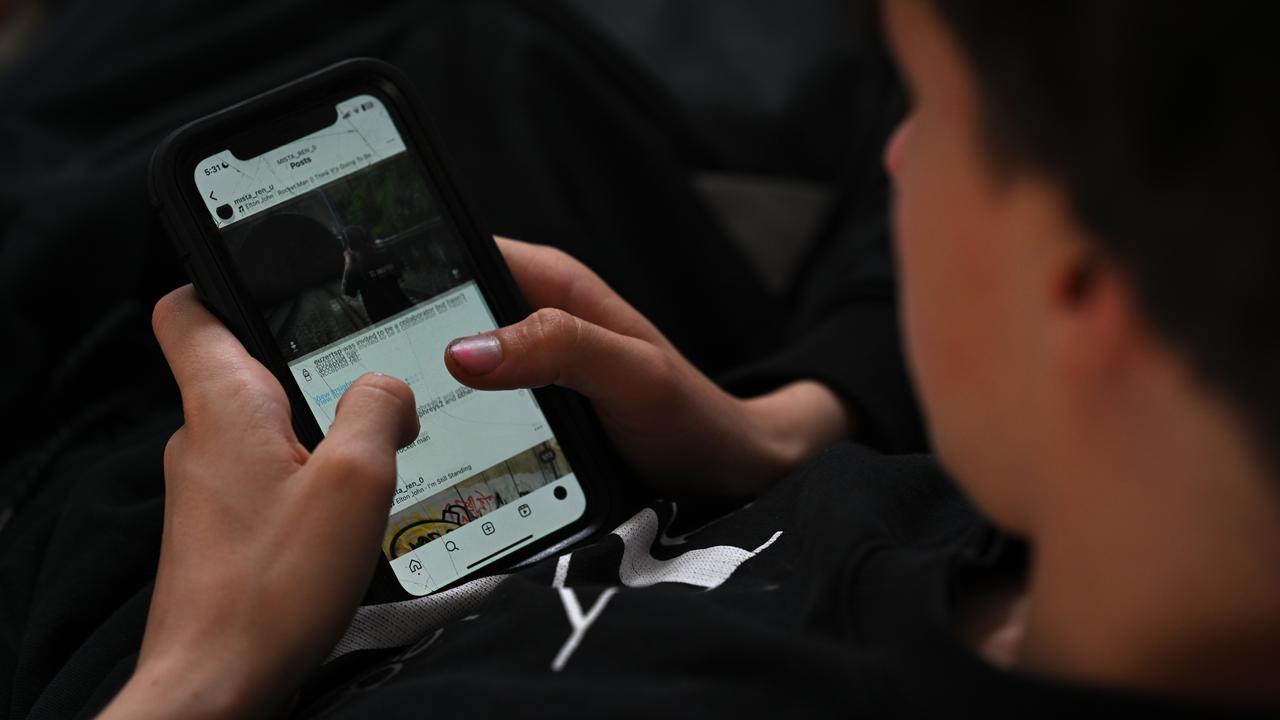
Responsible Wagering Australia, the industry’s peak body, said companies weren’t against reform but wanted measures to strengthen gambling protections and reduce exposure, especially for children and vulnerable people.
“Targeted measures like caps on the number of ads on TV per hour, bans on radio advertising during school pick-up and drop-off times and stricter age-verification and opt-out tools on digital platforms are the kinds of practical reforms that actually make a difference,” CEO Kai Cantwell told AAP.
“If regulation goes too far, people don’t stop gambling, they just end up on sites with no protections, no taxes and no accountability while sport, broadcasters and racing lose hundreds of millions in vital funding.”
A major concern from gambling companies is that restrictions on their ability to advertise and provide inducements would result in lost market share to offshore companies.
These operators don’t have the same consumer protections and are beyond the reach of Australian law.
As such, they’re able to offer massive sign-up bonuses or free bets that Australian companies can’t match.
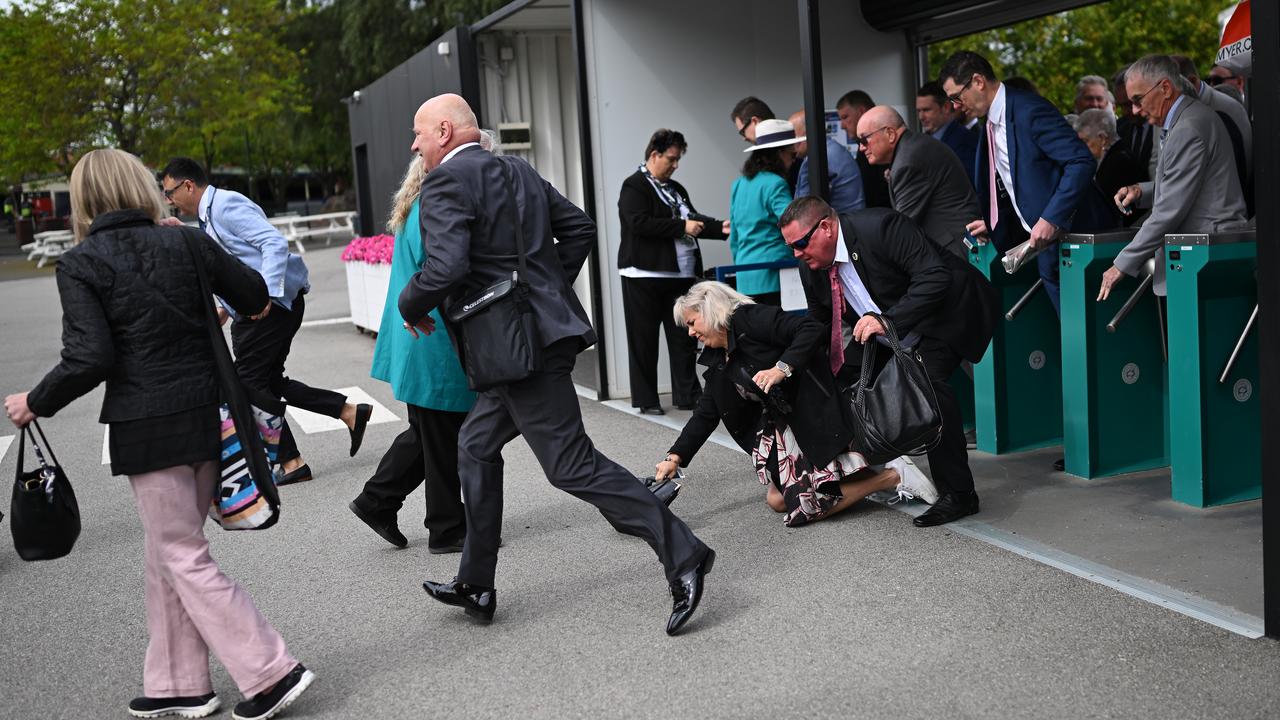
One touted protection is getting banks involved to block credit or debit card transactions to prevent Australians from using illegal, offshore companies.
It is already illegal to use credit cards to gamble in Australia.
Some gambling companies are already moving to self-regulate given intense political scrutiny on the industry.
This includes companies like SportsBet curbing commissions that are based on how much a person gambles.
SportsBet has also stopped advertising live betting odds during and just before sporting matches and doesn’t advertise within stadiums or on jerseys.
But offering inducements remains a major drawcard for gambling companies to retain punters and encourage betting.
Inducements include promotions like bonus bets that offer free cash when deposits are made or punts narrowly miss their mark, in turn encouraging further wagers.
Gambling harm reduction advocates have criticised this as a way to encourage people to bet more than they otherwise would.
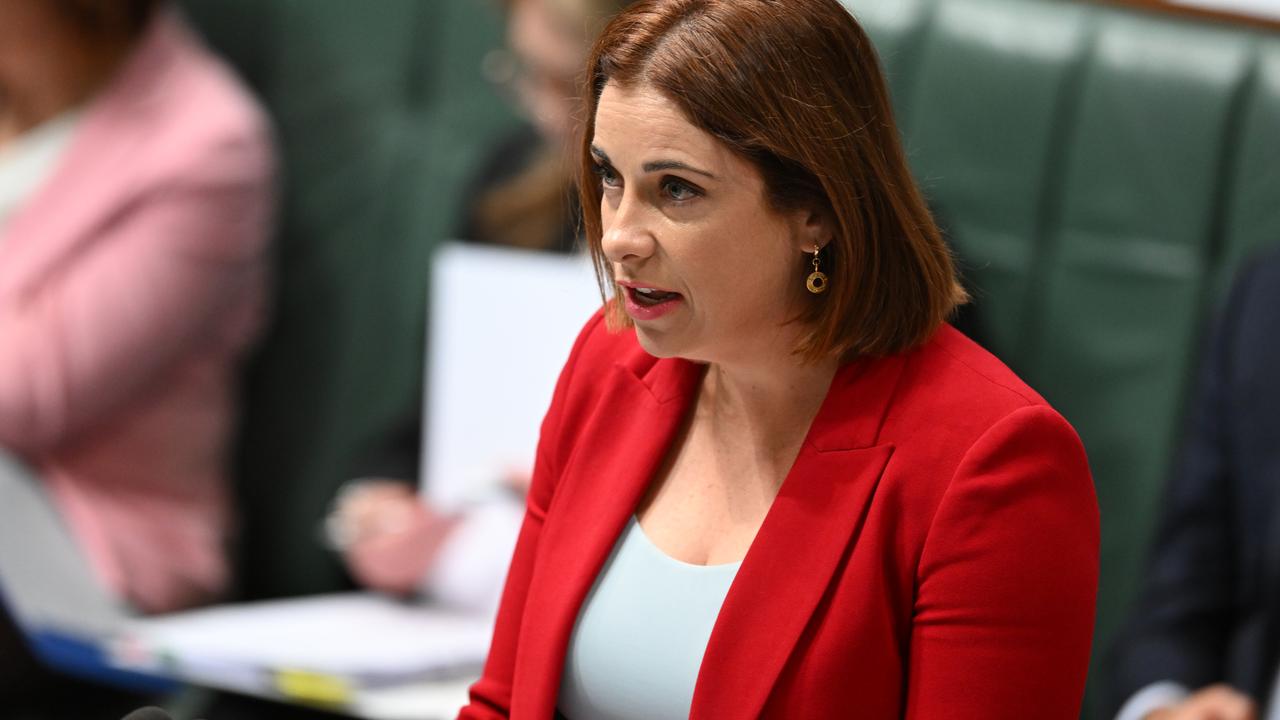
The federal government had already undertaken some of the most significant gambling harm reduction measures in Australian history, Communications Minister Anika Wells said.
The self-exclusion register BetStop had more than 30,000 active exclusions at the end of July.
“We know there is more to do which is why we have had several meetings with harm reduction advocates, broadcasters and sporting codes as we seek to further minimise the harms of gambling,” Ms Wells told AAP.
National Gambling Helpline 1800 858 858